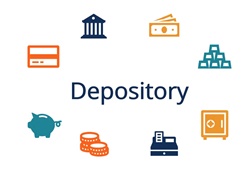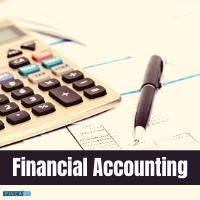
Table of Contents
Defining Financial Planner
Nowadays, maintaining your lifestyle is strongly influenced by your finances. The keys to achieving a financially secure future are good finances and financial planning. To be able to meet personal objectives as well as family obligations, you must be able to manage your funds. However, this isn't always feasible for everyone. Some may lack the necessary time or qualifications for this position. That’s when a Certified Financial Planner (CFP) comes into the picture. Financial planners have a wide Range of educational and professional experiences. Here, you’ll learn about financial planners, roles, responsibilities, qualifications of financial planners and so on.
Who is a Financial Planner?
A financial planner is a trained investment advisor who assists people and businesses in achieving their long-term Financial goals. They are often known as Personal or Certified Financial Planners. After analysing customer’s goals, risk tolerance, and life or corporate phases, professional guidance on investments, insurance, Taxes, Wealth Management, and Retirement planning is provided.

After which, they may then devise a strategy to assist the client in achieving those objectives by spreading their available funds among a diverse group of investments meant to grow or generate Income, as desired. Tax Planning, Asset Allocation, risk management, and retirement and estate planning are some of the expertise of a financial planner.
Role and Responsibilities of Financial Planner
Mostly, a financial planner creates Financial plan for the customers. Apart from it, they can provide a wide range of services. Some of them examine every element of your financial life to build a plan for achieving all of your financial objectives. Some of them may only advise you on a limited number of products. Here are a few roles and responsibilities jotted down to give you a clear picture of financial planners.
Talk to our investment specialist
Roles of a Financial Planner
- Implementation of policy to accumulate wealth
- Assisting clients in setting personal budgets
- Satisfying clients’ investment needs by collaborating with investment managers and financial advisors
- Staying updated with tax legislation, financial product developments, and financial management strategies
- Establishment of objectives to maximise savings and minimise expenses
Responsibilities of a Financial Planner
- Establishing and maintaining good relationships with clients
- Ensuring sound client record-keeping
- Communicating relevant updates that may affect the financial position of clients
- Providing insurance and investment services to clients
Financial Planner Vs. Financial Advisor
A financial planner is somebody who helps businesses and individuals in developing a strategy to achieve long-term financial objectives. Investments, taxes, retirement, and estate planning can be the areas of expertise for the planner. Additionally, the financial planner can possess a variety of licences or qualifications to help you out better.
A financial advisor, on the other hand, is somebody who merely advises you with finances. You pay the adviser, and in exchange, they assist you with a variety of financial chores. They can also assist with investment management, stock and fund sales and purchases, and the creation of a comprehensive estate and tax plan. However, the final decision remains yours.
The Bottom Line
Financial planners guide people in achieving their financial goals, such as saving, Investing, and retirement planning, and it can be a fulfilling profession. A person must exhibit an understanding of business and Personal Finance, as well as social skills, in order to become a financial planner. A bachelor's degree is sufficient to pursue this career, but further degrees and certifications assist in developing a stronger profession.
All efforts have been made to ensure the information provided here is accurate. However, no guarantees are made regarding correctness of data. Please verify with scheme information document before making any investment.












